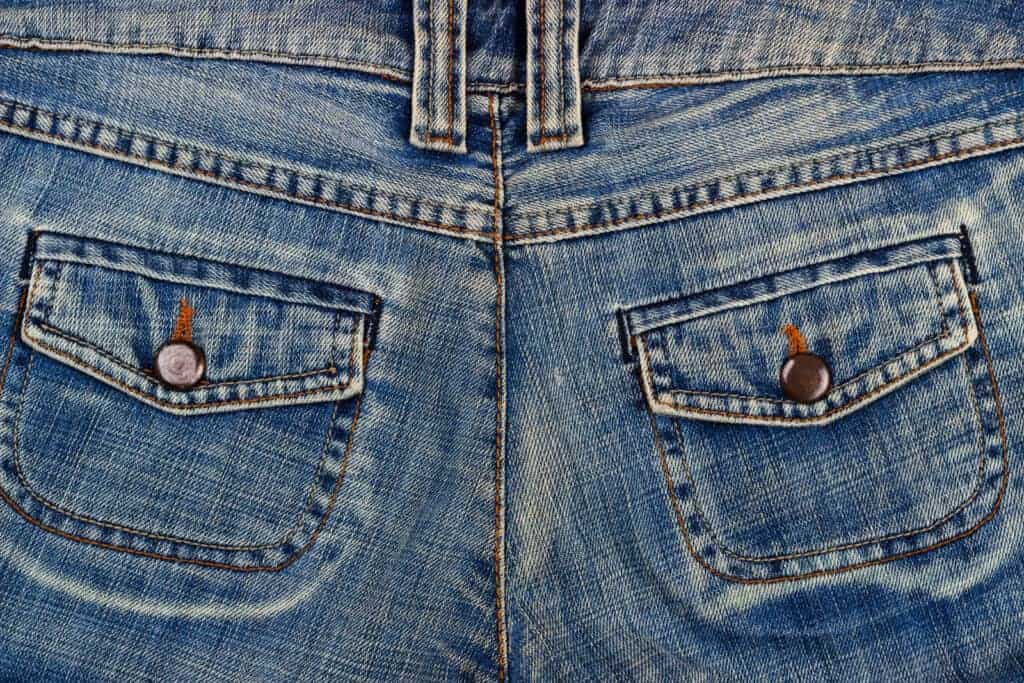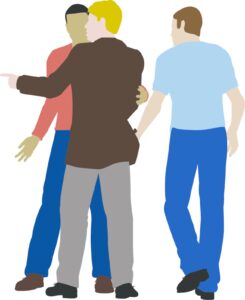Pickpockets are the worst. They don’t just steal your money and credit cards, and they also take away what matters most: your peace of mind.
The crime of pickpocketing is often committed by children and teenagers, who do not realize the long-term consequences of their actions. In addition to being prosecuted for theft, those caught can be banned from malls and stores and prevented from using public transportation such as buses or trains for up to six months.
For adults, pickpockets can cost you your job if they steal your wallet or cell phone while you’re at work. And if they steal something that has sentimental value, like an engagement ring?
That’s just devastating!
The best defense against these thieving vermin is awareness: know where thieves will strike next and take steps to avoid them before it happens.
Fortunately, it is possible to protect yourself from pickpockets. In this comprehensive guide, we will cover what you can do to avoid being a victim and how to deal with the aftermath if you become one anyway.
11 Techniques To Guard Yourself Against Pickpockets
No fear. No intimidation. Just a burst of adrenaline and a surge to action.
That’s all it takes for pickpockets to go from predators, preying on innocent victims, into the prey as they become the ones being chased by law enforcement officials.
So, let’s take a look at 11 things you can do to pickpockets just by being alert and aware of your surroundings.
1. Keep Distance From Walking Near A Road
If you’re walking on the sidewalk, make sure you’re at least two arm lengths away from any roads. This makes it harder for thieves to take advantage of unsuspecting pedestrians by quickly swiping their belongings and running off before anyone even notices what happened.
Along with that, if you are on the side of the road, make sure you are also two arm lengths away from moving traffic. This will help to prevent any potential robberies on the sidewalks.
2. Don’t Put Things Behind Your Pockets
It’s annoying when people get too close to you on the train stations or subway. But it’s exactly why they do it: To grab your wallet and runoff.
This is particularly true for thieves sitting next to you, who can slip their hand into your back pocket unnoticed while staring at what’s in front of them (i.e., a smartphone). For this reason, always keep your wallet in your front pocket.
3. Avoid Showing Off Expensive Items
While it may seem like a great idea to show off your new phone or a new piece of jewelry, this makes you an immediate target for theft. Instead of flaunting it around like a trophy, put your items away in your backpack or purse where they can be easily guarded.
The same goes for expensive smartphone cases; if it’s too flashy, don’t even bring it out in public.
4. Purchase Pickpocket Proof Stuff
There are a number of items that can help prevent thieves from stealing your money and credit cards while you’re out on the town.

They include:
- Front pocket wallet: This is a handy way to hold onto your money and cards without them being easily accessible. That said, this is not 100% foolproof as pickpockets can remove the wallet from your pocket when you’re distracted.
- Bag secured with a combination lock: A backpack or purse with a combination lock is almost completely theft-proof. But in order for this to work, you need to remember the combination at all times…otherwise, it’s useless.
- Coin purse: Coins are normally a great way to lose your wallet or purse, but a coin purse fixes that problem by keeping them in one easily accessible place.
5. Keep Your Money In Multiple Pockets
Your wallet is a pickpocket’s best friend because it’s easy to open up and contains all your credit cards. To avoid this happening, keep some of your cash in other places like your pocket or backpack so you can still pay for stuff if someone does manage to swipe your wallet.
6. Must-Have Hidden Pockets
You can purchase tons of hidden pocket accessories to keep your belongings safe, such as this money belt.
Never mind the fact that it makes you look like a secret agent (which is great), but the main function is to help you store money and credit cards securely in places pickpockets won’t be able to get to.
7. Avoid Using A Backpack
While it’s convenient to carry around all of your things in a backpack, they make you an easy target for thieves.
Not only do backpacks make it easier for someone to reach into your pockets, but if you wear it on one shoulder (which is the most common), pickpockets can easily unzip them and take what’s inside.
8. Must-Have Tight Pockets
Try to keep your zippered pockets as tight as possible. That way, if a pickpocket does manage to slip their hand into them without you noticing, they won’t be able to get anything out because it’s so tightly packed in there.
9. Aware Of Pickpockets Tricks
Pickpockets in tourist hot spots like Rome love to use distraction techniques to steal what’s off your pockets.
The most common tactic is when they pretend their hand is hurt, and while you’re changing directions to help them out, someone else swoops in and takes the contents of your pockets.

10. Be Alert In The Crowds
While pickpockets can strike in crowded places like the subway, it’s also easy for them to make their move when there are lots of people around.
So if you’re in a crowd and notice someone bumping into you repeatedly, keep your wallet close to your chest and be prepared in case they try and take it from you that way.
11. Anchor The Bag
If you use a purse or handbag, then anchoring it can help prevent it from being stolen off of your shoulder.
The best way to do this is by using the arm that’s not carrying the bag to hold onto one of the straps with your elbow, so someone has less chance of slipping their hands into it.
12. Don’t Keep Your Belongings In Unprotected Pockets
When wearing a jacket, make sure it has secure pockets that are difficult for pickpockets to open.
If you don’t have those types of pockets, be sure to keep your items (cash, credit cards, and phone) in the front pocket of your pants.
13. Know Who To Trust In Crowded Areas
In crowded areas, pickpockets can easily work their way into a crowd and hit multiple people without them ever noticing what happened.
For this reason, you need to stick together with other members of a group or family when traveling through crowded streets. Not only does this make it easier to spot pickpockets, but you’ll also be less likely to get lost or separated from others.
14. Know Where To Go With High Crime Rates
Cities with high crime rates are typically where you’re most likely to find people who want to take advantage of other people in public areas.
These include:
- Streets with many bars and clubs: These are prime targets for pickpockets who work their way around drunken people.
- Scam-heavy areas: Keep your guard up when in tourist destinations, as there are plenty of scams going on in these places, especially near money-changing booths.
- Public transportation: Trains and buses are notorious for swindlers who want to get their hands on your money or belongings.
Awareness For Males
Males are prey to pickpockets, making it easy for predators to walk them into secluded areas.
- While walking on the streets, males should keep their heads up and stay aware of their surroundings at all times – not just for females!
- The focus is on the back pockets of the trousers, suit coat, and sports jacket pockets, both inside and outside. Pickpockets avoid front trouser secret pockets because they value their independence. Front trouser pockets, especially buttoned or zippered ones, are avoided by pickpockets who prefer to keep their freedom.
- If you must carry your wallet in unbuttoned pants, coat, or jacket pocket, make sure it only contains what you can afford to lose. Keep important amounts of cash, credit cards, identification documents, and other things in your front pocket or any buttoned or zippered pocket; keys on a chain connected to your clothing are fine.
- “Pat” your pocket to check whether you still have your wallet on you. This informs the criminal of the location of your valuables. Avoid it.
- Larger-sized “pocket secretaries” are more appealing to pickpockets, and they’re also simple to steal.
Awareness For Females
Females are preyed on by pickpockets, especially when they’re in tourist areas or traveling alone.
Pickpockets are attracted to large purses and bags because they are easy targets.
- When you’re out in public, make sure your purse is zippered shut and physically attached to your body! If someone tries to yank it or pull it away, there is no way they can steal it without you realizing it.
- It’s also best to keep your bag on the side of your body with your hand over the opening; that way, if someone tries to slip their hand into it and grab something out, you’ll be more likely to notice them trying.
- You should also avoid carrying large amounts of cash and credit cards on your person. Keep these items hidden away in your front pocket unless you’re wearing baggy clothing that makes it unlikely for a thief to spot them.
- If possible, wear a backpack instead of a purse as they are harder for pickpockets to open without being noticed. If you do have a purse, keep it small and non-descript.
- Don’t draw attention to yourself by wearing flashy jewelry, carrying around an expensive-looking designer bag, or walking down the street with headphones on listening to music.
- If you notice someone suspicious walking near you while you’re out and about, go ahead and leave the area.
Awareness If Riding In An Auto
The most frequent kinds of vehicle theft are the stealing of valuables from your car. The crime of opportunity that occurs when one takes away the ability to prevent automobile theft can be avoided. Thieves generally won’t bother breaking into cars without valuable contents visible.
- The best way to protect your car is not to leave anything of value inside. This means removing everything from the car’s interior, even including things that may be placed in the trunk. If you can’t take these objects out for whatever reason, at least make sure they are out of sight.
- People often hide important documents in their glove compartment or under their seats, but crooks can easily see these spots.
- The most common vehicle theft is taking your license plate for use on another car, leaving you with a ticket and no plate when you get pulled over. Driving a nice car makes it easier to spot and steal; if you go with an older model or a foreign car that people don’t notice, then your vehicle becomes less of a target.
- In many countries, it is required to have the actual plate attached to the front and back of your vehicle. If you’re from a country where this isn’t required, and you drive around without having plates attached, you can get pulled over for not “displaying” your plates.
- People also often keep valuables in their glove compartments or under their seats; these are easily spotted by thieves, who will break into the car to get them if they notice them when walking past.
- But even if you aren’t keeping anything in there, you should still make sure the compartment is empty before leaving the vehicle; if you don’t, your car insurance company will charge you an additional fee for not having it cleaned out.
With any luck, this information will help keep your valuables where they belong: on you!
Conclusion
When it comes to protecting yourself from pickpockets, less is more. If you don’t have anything for anyone to take, you won’t lose anything. And if you can avoid drawing attention to yourself or your belongings while out in public, you’ll be much safer and make thieves think twice about trying their luck with you!
And remember: if you’re in a dark, secluded area and suddenly get the feeling like something might be wrong, trust your instincts! Get out of there as fast as possible before anything happens.


